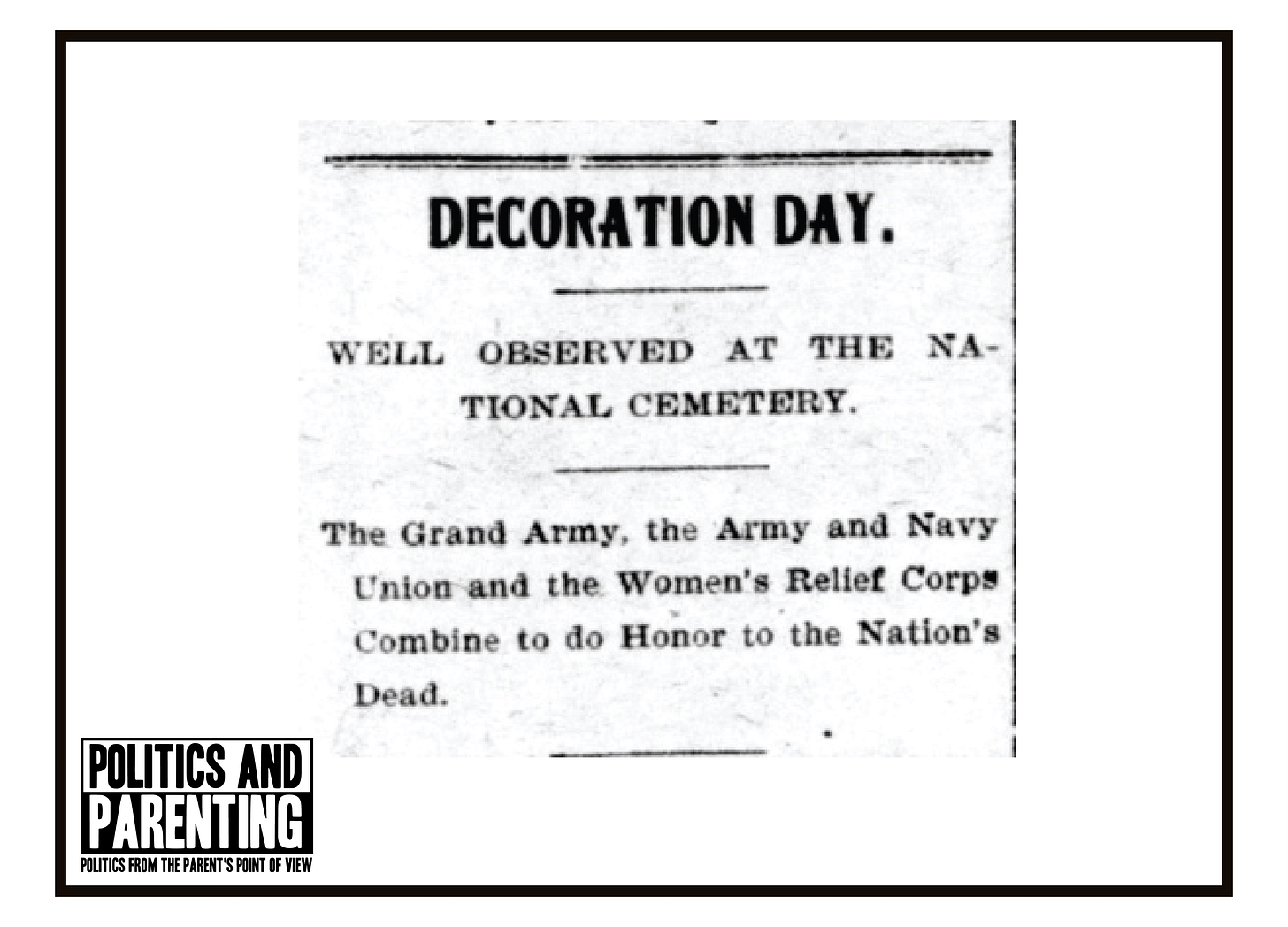Decoration Day
What shall men remember?
Like many things in our modern culture, Memorial Day's origins date back to the Reconstruction era and the Civil War. Originally called Decoration Day, it was an order given by General John A. Logan, commander of the general army, on May 5th, 1868. It designated the 30th of May “for the purposes of strewing or otherwise decorating the graves of comrades who died in defense of their country.” Before the order, the graves of northern and southern soldiers were decorated on different days.
The order was given in the spirit of union and forgiveness, as espoused by the commander-in-chief and president during the war, Abraham Lincoln. He understood that for a republic to remain united, there must be trust and forgiveness between countrymen. As Frederick Douglass said in his Memorial Day speech on May 30th, 1871, the Civil War was fought to protect the “dark and vengeful spirit of slavery.” The Confederate leaders were “always ambitious, preferring to rule in hell than to serve in heaven.” However, it’s important to remember that the men who sacrificed their lives were average citizens following the orders of powerful men. Decoration Day united the North and South to honor the fallen.
The tradition took hold in America, and every May 30th, citizens honored the fathers, sons, and brothers who gave their lives to reunite the country. Over time, honor was paid to citizens of all wars, and in 1971, it was made a national holiday.
War is awful, and there is no getting around that. It fills “our land with widows and orphans,” makes “stumps of men,” and sends them on a “journey of life armless, legless, maimed and mutilated.” It piles “up a debt heavier than a mountain of gold.” War is not something we want to remember, but as Douglas said in his 1871 speech if war is to be forgotten–– “what shall men remember?”
War can be a tool to preserve the interests of powerful men or a last resort to protect freedom. It is full of virtue and vice. But we should not ignore the virtue because of the darkness of vice. We don’t have to agree with war to honor those who serve.
Today, we remember the honor and sacrifice of those who have served to protect our freedoms and given more to this country than most. We remember the lessons of past generations, teaching them to the next generation to remain united and gift the future with the freedom secured by our past.
To all those who have served and sacrificed. Thank you.



